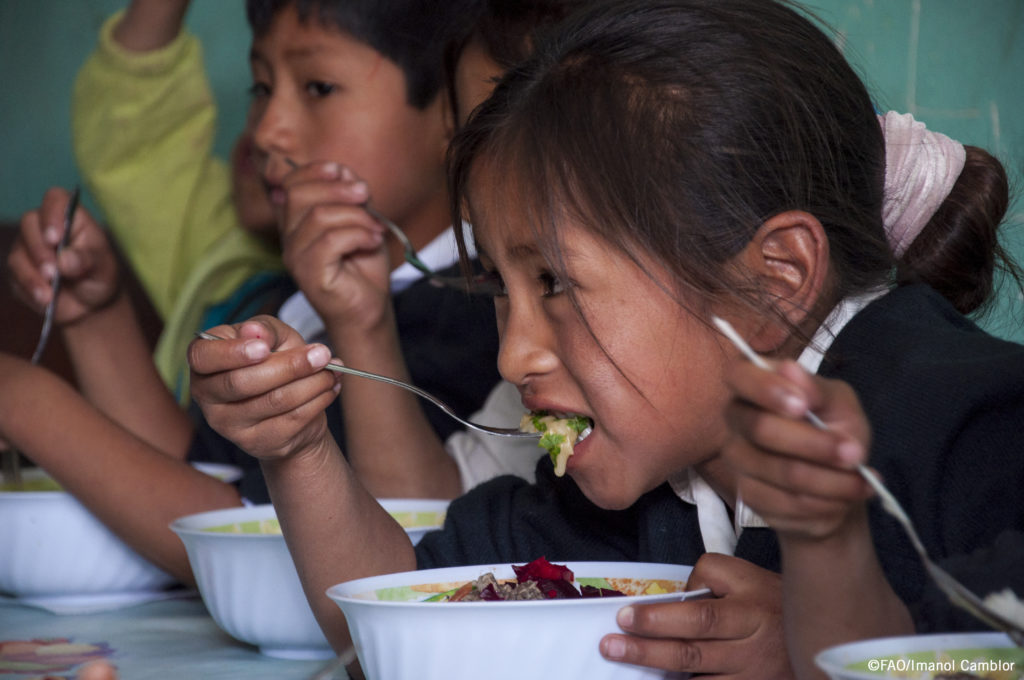It is expected to reach 3,500 teachers and directors of educational institutions.
Lima, June 12, 2023 – This Wednesday, June 14, education professionals will begin the course Educating to achieve healthy and sustainable school environments: Healthy Life Peru 2023, within the framework of the project Consolidation of School Feeding Programs in Latin America and the Caribbean, of the Brazil-FAO International Cooperation Program. The launch will take place at the College of Engineers of Peru, in the Departmental Council of Junín.
The training will be carried out in two modalities. The virtual part, aimed at 10 departments (Ayacucho, Apurímac, Cusco, Puno, Ancash, Huancavelica, Tumbes, Piura, Amazonas, San Martín), will have a total of 3,000 vacancies. The blended learning part will be aimed at five departments (Cusco, Huancavelica, Junín, Loreto and Puno), with 500 vacancies. It is expected that this training will reach 3,500 participants,
The target audience are the teachers and directors of the educational institutions that constitute the School Meals Committees (CAE), of the National School Meals Program (PNAE) Qali Warma. In this training, the most vulnerable regions due to food insecurity in Peru have been prioritized. Professional and technical personnel from PNAE and regional government personnel linked to the Program will also participate.
The Consolidation of School Feeding Programs in Latin America and the Caribbean project is an initiative carried out jointly by the Brazilian Cooperation Agency of the Ministry of External Relations (ABC/MRE), the National Fund for Educational Development of the Ministry of Education (FNDE/MEC) and the Food and Agriculture Organization of the United Nations (FAO). It integrates the actions of the Brazil-FAO International Cooperation Program.
In 2023, the Brazil-FAO Cooperation is supporting teacher training in 11 countries, taking as reference the methodological experience known as Sustainable Schools, which has food and nutrition education actions as one of the six components.
In addition, it is supporting the countries in the development of initiatives that can promote the necessary advances in school feeding programs such as internal missions, face-to-face events, exchanges of experiences, studies or surveys, publications, training, among others.





